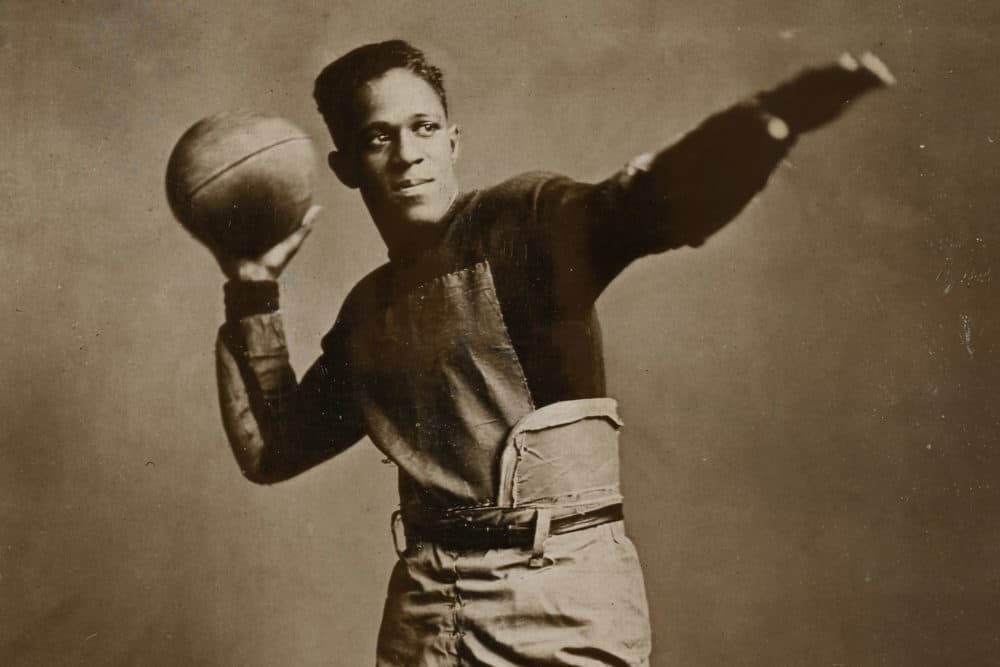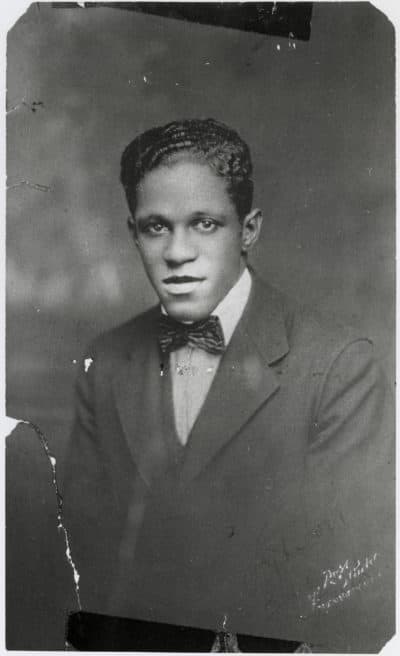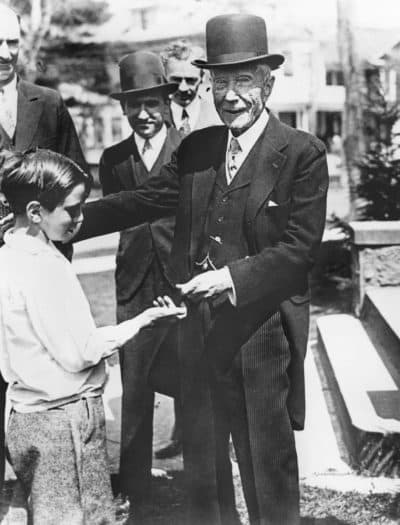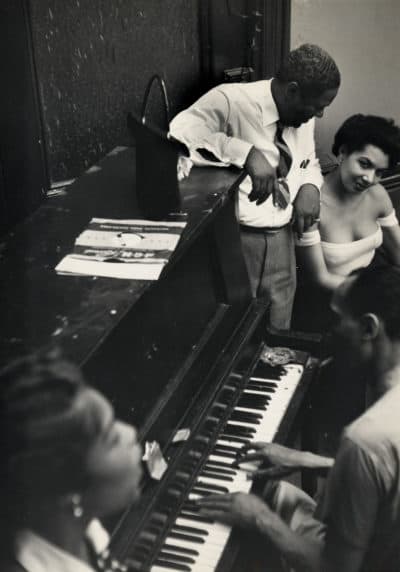Advertisement
Fritz Pollard And John D. Rockefeller: Men Of Business
Resume
This story is part of Only A Game's Thanksgiving Leftovers Show. Find the full episode here.
Fritz Pollard is a Hall of Fame football player. He was the NFL’s first black quarterback and head coach. One hundred years ago, he endured death threats and racism as a Brown University running back. And, while he was in college, he got good at making money.

"He was the best-dressed man on campus," Fritz Pollard III says of his grandfather's time at Brown.
Pollard the elder had some sharp threads of his own. But he augmented his wardrobe in a creative way.
"No one liked to do laundry, so he would do their laundry in his dorm room and return it," Pollard III says. "Of course, he wore it, also — if something would fit him. So he got the nickname — he was the Best Dressed Man On Campus — because he was wearing everybody’s clothes."
These days, such brazen money-making would send NCAA administrators to the fainting couch. But, fortunately, the NCAA didn’t have much power then. Pollard’s industriousness attracted the attention of one very wealthy man who visited Brown in 1916.
Brush With A Billionaire
"John Rockefeller," Pollard III says.
You and I know him as John D. Rockefeller, the oil and railroad magnate who became the wealthiest American of all time.
"And John Rockefeller had heard about his little business on the side."
Rockefeller began his business career at age 16 in a similarly humble way: as an assistant bookkeeper at a small produce commission firm.
"So he wanted to meet my grandfather," Pollard III says. "And he reminded him so much of himself when he was growing up and starting to earn his first money, that he went and paid my grandfather’s tuition."

That’s another NCAA violation for those keeping score at home.
But Rockefeller didn’t stop there. He leased the empty dorm room adjacent to Pollard’s.
"And they cut a hole through the wall," Pollard III says. "So he had one room for his business and one room for studies while he was at Brown."
John D. Rockefeller had amassed his gigantic fortune by trusting his instincts. And his instincts told him that Fritz Pollard was a worthy and wise investment.
“And he told him, he said, 'When you’re done with this football foolishness, you come to New York and see me when you’re ready to work.' ”
Pollard never did work for Rockefeller. But they stayed in touch. After six seasons as a pro football player, Pollard pursued a business career.
"Rockefeller gave him a loan," Pollard III says. "Gave him a $29,000 loan that my grandfather used after the Crash to start his business."
Pollard invested in two barnstorming football teams, the first securities firm owned by an African-American, a newspaper and a talent agency.
"He signed all these people," Pollard III says. "Even Lena Horne."

Pollard represented dozens of other singers and actors, including Paul Robeson, a former teammate of his on the 1921 Akron Pros.
"So if you needed black talent for a movie or anything, you had to come to my grandfather."
Fritz Pollard became wealthy, despite Jim Crow laws and other forms of racism.
"He had such an outstanding character that he didn’t let anything get him down," Pollard III says. "He was just so positive about everything."
'This Money's No Good'
In the fall of 1972, Fritz the Third arrived in Providence, Rhode Island to study and play football at his grandfather’s alma mater.
"When I was a freshman at Brown, I went into a store. And I said, 'Will you take an out-of-state check?' ” Pollard III remembers.
He said he needed some new clothes. The cashier said she’d have to ask the owner.
"And she went in the back, and this little old man came out. And he said 'Are you related to the Fritz Pollard?' I said, 'Yes, that’s my grandfather.' He goes, 'Well, this money’s no good.' I said, 'There’s money in the bank! No, no, no …' He said, 'No, your money’s no good here. Anything you want, it’s yours.'
"He said, 'My father took me to see your grandfather play when I was a little boy.' And he said it was the greatest experience to see him run."
Our original story on Fritz Pollard aired on Jan. 13, 2018.
This segment aired on November 24, 2018.
